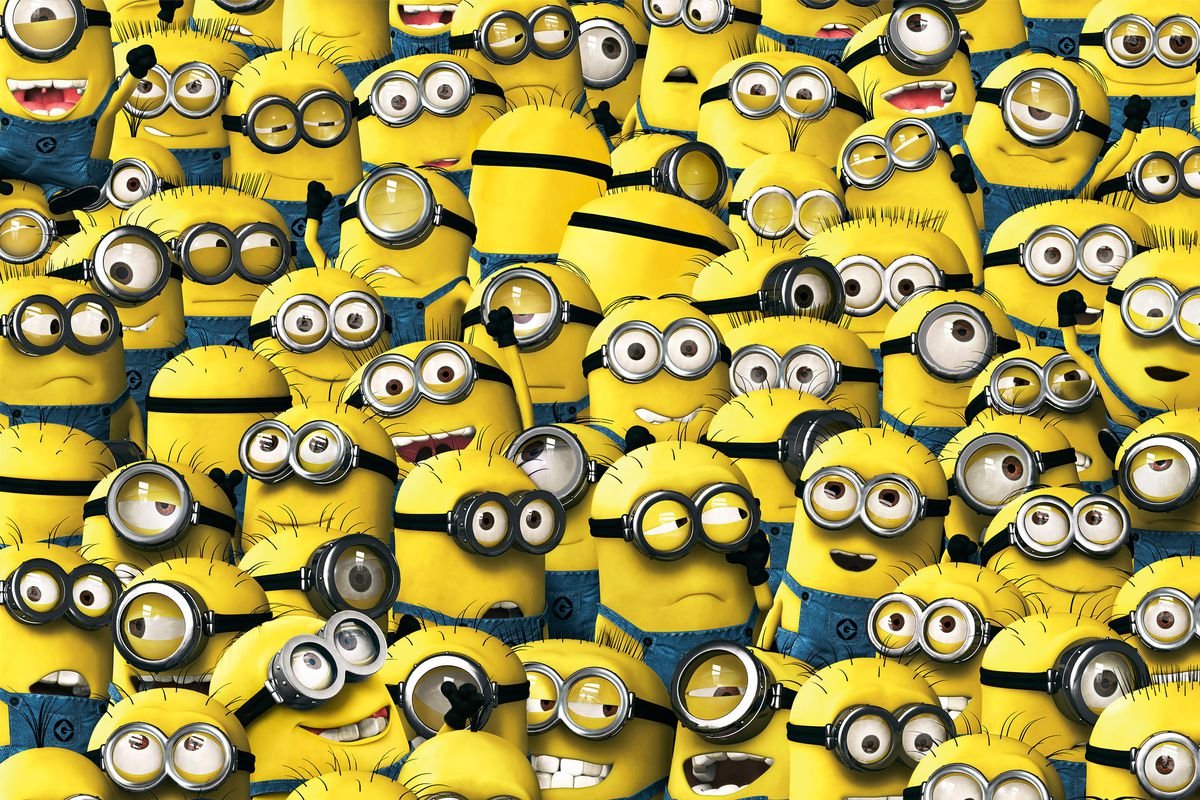The Cowboy and the Beast. Understanding the risks we face and how to break the rings of hell (II/III)


· 7 min read
This is part two of a three-part series. You can find part one here and part three here.
To design our way out, we must include all three legs of the stool and the doughnut, plus incorporate 2nd, 3rd, and 4th order analysis of potential unintended consequences.
We need to build design principles and criteria for collective and collaborative design because many minds and hands are needed to navigate out of our metacrisis. We are 8 Billion people, not a tribe. Can the Dunbar principle be used in design and scaled globally?
What is the beast? A part of the famous poem “Howl” by Allen Ginsberg from 1956 explains it like no other.
What sphinx of cement and aluminum bashed open their skulls and ate up their brains and imagination?
Moloch! Solitude! Filth! Ugliness! Ashcans and unobtainable dollars! Children screaming under the stairways! Boys sobbing in armies! Old men weeping in the parks!
Moloch! Moloch! Nightmare of Moloch! Moloch the loveless! Mental Moloch! Moloch the heavy judger of men!
Moloch the incomprehensible prison! Moloch the crossbone soulless jailhouse and Congress of sorrows! Moloch whose buildings are judgment! Moloch the vast stone of war! Moloch the stunned governments!
Moloch whose mind is pure machinery! Moloch whose blood is running money! Moloch whose fingers are ten armies! Moloch whose breast is a cannibal dynamo! Moloch whose ear is a smoking tomb!
Moloch whose eyes are a thousand blind windows! Moloch whose skyscrapers stand in the long streets like endless Jehovahs! Moloch whose factories dream and croak in the fog! Moloch whose smoke-stacks and antennae crown the cities!
Moloch whose love is endless oil and stone! Moloch whose soul is electricity and banks! Moloch whose poverty is the specter of genius! Moloch whose fate is a cloud of sexless hydrogen! Moloch whose name is the Mind!
Moloch in whom I sit lonely! Moloch in whom I dream Angels! Crazy in Moloch! Cocksucker in Moloch! Lacklove and manless in Moloch!
Moloch who entered my soul early! Moloch in whom I am a consciousness without a body! Moloch who frightened me out of my natural ecstasy! Moloch whom I abandon! Wake up in Moloch! Light streaming out of the sky!
Moloch! Moloch! Robot apartments! invisible suburbs! skeleton treasuries! blind capitals! demonic industries! spectral nations! invincible madhouses! granite cocks! monstrous bombs!
They broke their backs lifting Moloch to Heaven! Pavements, trees, radios, tons! lifting the city to Heaven which exists and is everywhere about us!
Visions! omens! hallucinations! miracles! ecstasies! gone down the American river!
Dreams! adorations! illuminations! religions! the whole boatload of sensitive bullshit!
Breakthroughs! over the river! flips and crucifixions! gone down the flood! Highs! Epiphanies! Despairs! Ten years’ animal screams and suicides! Minds! New loves! Mad generation! down on the rocks of Time!
Real holy laughter in the river! They saw it all! the wild eyes! the holy yells! They bade farewell! They jumped off the roof! to solitude! waving! carrying flowers! Down to the river! into the street!
 Moloch: “Sacrifice the child so you may continue living.”
Moloch: “Sacrifice the child so you may continue living.”
Allen was heavily criticized for Howl. I came to realize that collective consciousness exists. There is an awareness or collective intuition of the underlying beast causing all our risks. We see repeatedly how works like these have been suppressed and actively ignored by optimists, including myself.
Examples of these works are from people like Kazimierz Dąbrowski, Nicolae Georgescu, Ivan Illich, Serge Latouche, Vaclav Smil, Janos Kornai, and I could go on and on, whose works have had little impact on changing our systems, mainly because of Moloch exerting its invisible power over us.
Moloch, to me, is the Sauron of our time, and it is our duty to cast the One Ring that binds all others into darkness, into the fires of Mount Doom.
I do miss despicable me.

I prefer Sauron because most people would be more familiar with the name and the story.
I will briefly cover one specific risk that we face. These risks have a relatively high probability of causing a catastrophe or dystopia.
What is Sauron’s influence over our Technology stack?
What would our technology stack possibly look like without Sauron and his emissaries?
Let us start with listing some of the catastrophic risks, particularly the environmental risks that have brought us to our planetary boundaries.
Biodiversity loss, species extinction, soil erosion, lack of fresh water, severe weather, plastic, chemical (PFAS) nitrogen, and phosphorous pollution. A large part of the reason we are in this predicament is because of our technology. We can catch more fish in one net than a whale can catch in a month. We can collect more grass in a day than a cow can. We produce more milk at dairy farms than a herd of wildebeests on the plains of Africa, etc.
Our technology drives our economic systems and our societal systems. Thanks to automation, it is so powerful that it practically runs itself and has become a beast tied to perverse incentives. Without perverse incentives, there is immense value in technology. We need to learn how to pause, but I fear it may be too late as our systems do not see an advantage in a pause, fail-safe analysis. Eat or be eaten dominates our tech landscape. Business is war. Read Sun Tzu and the art of business.
The most incredible invention of our time is social media and e-commerce platforms. It's also easiest to commence with to explain our metacrisis. When it was first designed and rolled out, nobody considered doing a physiological, psychological, or environmental deep dive regarding its possible negative effects on society and our planet. They could not have known as the development was intuitive, and the people or companies working on the code were locked in an arms race to get the platform out as fast as possible due to financial pressure (burn rate), game theory dynamics, and multi-polar traps (competitive threats). Most importantly, the premise of these developments was rooted in doing good because we are inherently good people. We in the highly competitive data networking space, played our part beautifully by increasing speed and bandwidth. Moore and Metcalfe, we worship you. Whip that horse from 3G to 4G to 5G, yeeha.
Where is Sauron in all of this? That sneaky invisible presence started to exert its influence in the user techno space with the economic system it had already infected. While users could use the platform for free, the company was left with a cost that needed to be recovered. Enter Sauron’s most beloved agent: the perverse incentive to maximize short-term profit and its emissary, the fiduciary obligation of the board to meet shareholder demands, and to top it off - the jewel in the crown: Increase shareholder value. These shareholders, often institutional investors like pension funds, have a fiduciary responsibility to maximize returns to meet their current and future pensioners' needs. These funds compete with each other. Enter game theory and multipolar traps. A perfect system created to destroy the commons
The enterprise is now a giant ship where a CEO can easily be replaced. That is one of Sauron’s many goals, but how did he get a grip on our current tech? Enter the world of algorithms that could synthesize massive quantities of user data to keep the user hooked, increase eyeballs, and sell more products. This inadvertently led to us being provided information that we liked.
We consume information based on our likes, which results in our current crisis: polarization, post-truth dynamics, narrative warfare, and the rise of demagogues, which has damaged friendships, torn communities and families apart, and adding insult to injury, further damaged the planet. That’s how Sauron broke the fellowship, in case you need more clarification. The sheer amount of energy required to facilitate this growth is almost unimaginable, and the need for more energy is even more fantastical. I’m not talking about carbon and renewables alone here.
illuminem Voices is a democratic space presenting the thoughts and opinions of leading Sustainability & Energy writers, their opinions do not necessarily represent those of illuminem.
illuminem briefings

Climate Change · Environmental Sustainability
illuminem briefings

Climate Change · AI
Gokul Shekar

Effects · Climate Change
The Guardian

Climate Change · Agriculture
The Guardian

Agriculture · Climate Change
Euronews

Climate Change · Effects